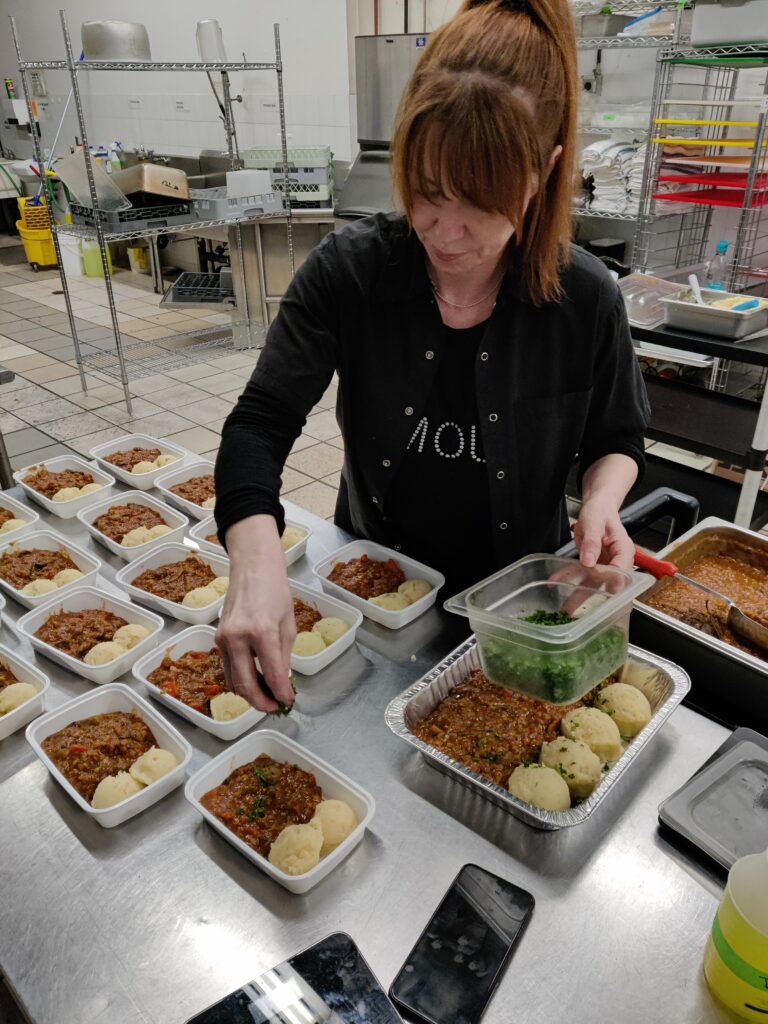“Deliciously crafted. Conveniently delivered.”





FCUL offers a rare chance to invest early in a company set to benefit from explosive industry growth, scalable digital trends, and massive shifts in consumer behavior — all while operating in a sector with proven demand and expanding demographics.
📢 The Message
Food Culture Inc. (OTC: FCUL) is a U.S.-based meal delivery company that has been expanding its presence in the food-tech industry. The company offers a range of chef-curated meals, customizable plans, and sustainable practices. These services are delivered under the “All Your Meals” brand, targeting the Vancouver, British Columbia metropolitan area and other markets. Food Culture Inc. utilizes proprietary software to manage its logistics, tracking meals from ordering and ingredient acquisition to preparation, delivery, and payment .
- – – – –
The meal delivery industry has seen significant growth, with the global market size projected to reach approximately USD 65.10 billion by 2030, growing at a compound annual growth rate (CAGR) of roughly 15.47% between 2023 and 2030 . Food Culture Inc. aims to capitalize on this trend by offering convenient, healthy, and sustainable meal options to consumers. The company’s subscription-based model provides a consistent revenue stream, which can be attractive to investors seeking stability. Additionally, Food Culture Inc. focuses on using organic and sustainably sourced ingredients, reducing food waste, and providing healthy options, aligning with growing consumer demand for ethical and health-conscious food choices.
– – – –
In summary, Food Culture Inc. presents an intriguing opportunity in the growing meal delivery sector, with its focus on convenience, sustainability, and technology-driven logistics. While the company offers potential for growth, investors should carefully consider the associated risks and conduct thorough due diligence before making investment decisions.
📈 Why Retail Investors Should Consider Investing in FCUL
1. High-Growth Industry Exposure
The Canadian meal kit delivery market is experiencing a major growth surge, projected to expand from US$1.66 billion in 2024 to US$2.73 billion by 2028 — a robust CAGR of 13.24%. Investing in FCUL gives shareholders early exposure to a rapidly scaling industry benefiting from strong secular tailwinds.
– – – –
2. Massive Demand Trends
Today’s consumers — including millennials, families, seniors, and rural populations — are increasingly prioritizing health, convenience, and online purchasing. FCUL is positioned to capture these multiple expanding demographics with targeted offerings that match their evolving needs.
– – – –
3. Strategic Market Timing
With Canada’s meal kit sector still in a growth phase (not maturity), FCUL is entering at a time when market share is still up for grabs. Early movers often gain lasting competitive advantages in sectors before consolidation happens.
– – – –
4. Scalable Business Model
Meal kit companies can scale quickly with the right logistics and digital strategy. FCUL’s ability to tap into digital-first consumer behavior allows for faster growth without heavy legacy infrastructure costs — leading to greater potential operating leverage as sales grow.
– – – –
5. Strong Macro Tailwinds
Broader lifestyle trends — including remote work, busy urban living, and a health-first mindset — are pushing consumers toward prepared meal solutions. FCUL rides these long-term behavioral shifts, making its growth potential not just a pandemic-driven trend but a lasting opportunity.
– – – –
6. Undervalued, Early-Stage Opportunity
As a new entrant in a booming sector, FCUL may offer investors a ground-floor opportunity before wider institutional recognition and before valuation multiples expand alongside revenue growth.
– – – –
Check out our menu
.
.
.
Disclaimer: The information provided above is for informational purposes only and does not constitute investment advice, financial advice, or an offer to buy or sell any securities. Always perform your own research and consult a licensed financial advisor before making any investment decisions.
—
Safe Harbor Statement: This document may contain forward-looking statements within the meaning of the Private Securities Litigation Reform Act of 1995. These statements are based on current expectations and projections about future events and involve risks and uncertainties. Actual results may differ materially due to a variety of factors, including market conditions, competitive pressures, regulatory developments, and other risks described in Food Culture Inc.’s filings with the SEC. Readers are cautioned not to place undue reliance on these forward-looking statements, which speak only as of the date they are made.
